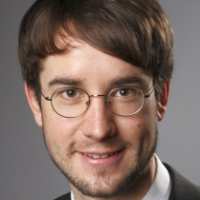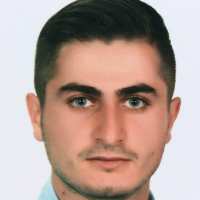Cohort 1 (2014 - present)
| Image | Details |
|---|---|

|
Filip BabovicUrban resilience to water challenges under deep uncertaintySupervisor(s): Dr Ana Mijic and Dr Kaveh Madani There is uncertainty regarding future climate change and other key parameters such as land use, which affect flood risk. The interaction of these parameters leads to a condition known as deep uncertainty, which poses challenges on how to best adapt to future urban flood risk. The aim of my research is to combine existing decision making frameworks and modify them to include factors such as flexibility, the value of ecosystem services and solutions to flooding that go beyond civil infrastructure. |

|
Christine BischoffInvestigating ground movement and its causes in London, UK, using SAR interferometrySupervisor(s): Dr Richard Ghail and Dr Philippa Mason This research aims to improve understanding of ground movement and its causes in London. The model of London’s geology has been changing rapidly over the past 5 years and it is now thought that the London Basin is underlain by a series of rigid blocks, tens of kilometres in scale, that are moving on a millimetre scale relative to one another. The project aims to monitor and improve understanding of these small-scale movements using Differential Interferometry based on Synthetic Aperture Radar images (DInSAR). The outcomes of this project will be particularly important for urban subsurface designs, for which mm-scale ground movement, if unanticipated, can incur major costs and safety risks. |

|
Nils GoldbeckModelling the interdependence of civil infrastructure systems and analysing their behaviour under conditions of cascading failureSupervisor(s): Dr Panagiotis Angeloudis and Professor Washington Ochieng This research will develop methods for the mathematical modelling of interdependent urban infrastructure networks, such as transport, energy or communication systems. The aim is to understand how a city’s lifeline infrastructure systems behave under stress arising from natural and man-made disasters, for example flooding. A network-of-networks approach is being used to develop quantitative assessment of the risk of cascading failure across system boundaries. |

|
Alex GrayStorm surge modelling, the role of climate change and the impact on floodingSupervisor(s): Dr Marios Christou and Professor Chris Swan This research is investigating how varying water depths close to the shore, which are introduced by storm surges, affect the magnitude and frequency of extreme wave events. This involves simulating various scenarios numerically and verifying these using wave flumes in the laboratory. The research will be used to design more effective flood defence solutions for vulnerable coastal areas. |

|
Nina JirouskovaQuantitative assessment of container terminal operational recovery from natural disastersSupervisor(s): Dr Panagiotis Angeloudis The research objective is to better understand the dynamic operational response of container terminals to natural disasters and their recovery process. The study is based on a stochastic simulation of impact scenarios based on fault tree analyses and existing fragility and vulnerability curves. These scenarios are input into a dymanic network flow model which assesses the interdependent flows within the terminal. In conjunction with the fault trees and stochastic simulations of recovery scenarios, the analyses assess the evolution of the performance of the terminal with time, up to recovery. The performance is assessed in terms of indices relevant to a variety of stackholders involved in container terminals operations (e.g., public authority, managers, disaster financing institutions). |

|
Alalea KiaPorous pavementsSupervisor(s): Dr Hong Wong and Professor Chris Cheeseman This research is investigating the permeability degradation in pervious concrete by developing fundamental understanding of clogging processes. The aim is to understand the effect of microstructure on clogging and develop a pervious concrete mix that not only has sufficient porosity for storm-water infiltration, but also maintains that porosity throughout its service life. Solving the clogging problem will make a major contribution towards sustainable urbanisation and the protection of critical infrastructure from surface flooding. |
|
|
Laure SioneCitizen science for assessing the causes, characteristics and costs of water supply intermittency in developing countriesSupervisor(s): Dr Michael Templeton and Dr Christian Onof Water intermittency is a widespread affliction in many low-income countries, where having piped water supply to the home is not synonymous to having access to continuous, reliable or safe water. The Ph.D. will address two fundamental technical causes of water intermittency, lack of electricity - needed for the operation of the pumps in the water distribution network - and water scarcity. The research will use citizen science data to assess the causes, characteristics and costs of water supply intermittency in developing countries. Initially, the dynamics of the intermittent water systems will be visualized using a modelling tool, and a statistical trend analysis will evaluate the extent of the intermittency under electricity and water scarcity. This will be followed by an evaluation of the economic impacts that intermittent water supplies have on household costs. Different strategies using renewable energies will be proposed to address the intermittency by providing more electricity for the operation of the water system, and / or supplementary water resources. Thanks to this groundwork, the research will then be able to explore potential policy interventions to manage the water supply, alleviate the impacts on households and facilitate the use of renewable energies to intervene in the system. |
Cohort 2 (2015 - present)
| Image | Details |
|---|---|

|
Liliane AuwerterLow-energy water tranmission in pipe lines by hydrophobic coatingsSupervisor(s): Dr Maarten van Reeuwijk, Professor Chris Cheeseman and Dr Michael Templeton Superhydrophobic materials have been used for many purposes: from 'water-proof' sprays applied to clothing to the paint on vessels, intended to reduce drag and hence the energy required for transportation. This PhD research aims to modify and assess the use of eco-friendly superhydrophobic materials produced at Imperial College to be used inside water pipes, for reducing friction and the energy of water transport. |
|
|
Laura BellamyOptimisation of structural form based on multiple sustainability factorsSupervisor(s): Dr Andrew Phillips and Dr Christian Malaga Industrial Partner(s): Robert Bird Group The aim of this PhD research is to investigate the multifactorial optimisation of long-span roof structures. The research is focused on stadium roofs and involves the modelling of the roof in order to optimise the design, the constructability, and temporary works requirements. The expected output is a tool that the industry can use to develop optimised structural forms in terms of cost and carbon emissions. The goal is in the future to extend the outputs to other long-span roof structures such as airports and to inform good practice guidelines. The research is being carried out in partnership with Robert Bird Group. |
|
|
David BlythCharacterisation of Long Term Pollution Effects of Subsurface Energy Extraction Using Combined Analytical TechniquesSupervisor(s): Dr Adrian Butler and Dr Geoff Fowler Industrial Partner(s): CSIRO Unconventional energy sources such as shale gas are beginning to play a major role in our energy landscape. Hydraulic fracturing, or fracking, is currently under debate as to its environmental degradation potential. Worldwide reserves of unconventional gas is available in the form of shale and coal seam gas but relatively little environmental research has gone into understanding the long term effects of such activities. This project aims to develop novel techniques for characterising organic pollutants in waste streams. By combining multiple chemical analytical techniques this project aims to enhance our capabilities of understanding the nature and source of pollutants derived from anthropogenic processes. |
|
|
Ashley BrooksNovel approaches to provide optimum urban resilience in the presence of multiple threats - development of robust and resilient positioning, navigation and timing solutionsSupervisor(s): Dr Wolfgang Schuster and Professor Washington Ochieng Industrial Partner(s): Catapult Satellite Applications This research will investigate key threats in urban environments, focussing on the development of novel approaches to detect and identify relevant threats and propose appropriate mitigation measures to enhance “urban resilience”. A key area of interest is the resilience of transport systems. |
|
|
Mohamad El HattabTechno-Economic Evaluation of SuDS Performance at the Full ScaleSupervisor(s): Dr Ana Mijic and Dr Christian Onof Industrial Partner(s): Thames Water Sustainable urban water management solutions for future urban flood resilience often include Sustainable Urban Drainage Systems (SuDS), but the extent of data at the full-scale on their performance and maintenance in UK is limited. To fill this gap, Thames Water are constructing SuDS measures in 3 streets in London as part of a larger flood alleviation project called Counters Creek. This project will develop modelling and monitoring approaches for SuDS’ full scale performance assessment and undertake research to develop a methodology for SuDS evaluation tool to inform Thames Water future SuDS programme. |

|
Jose EscribanoUnmanned Aerial Vehicles (UAVs) in humanitarian logisticsSupervisor(s): Dr Panagiotis Angeloudisand Dr Wolfgang Schuster Post-disaster relief requires fast deployment of goods to people in need. Relief is a time-critical process, decisions must be taken quickly with very little information and all incorrect and inaccurate decisions lag the supply chain process. Unmanned Aerial Vehicles (UAVs) have the potential to bring cheap and accessible technologies that may accelerate most of the processes involved in humanitarian relief. The aim of this PhD is to investigate the use of UAVs in humanitarian logistics and to create a model for the distribution of goods that can be used in the planning process of humanitarian aid. The model is to be optimised to save as many lives as possible and to reduce the risks volunteers are exposed to during these situations. The model should take into account the limitations of UAVs, such as their vulnerability to weather, their limited payload capacity, and energy consumed. These will form components of a framework that could be used to coordinate the distribution of humanitarian aid resources. |

|
Tom GryllsSimulating the impact of blue-green infrastructure on the local microclimate of urban areasSupervisor(s): Dr Maarten van Reeuwijk More than half of the global population is now said to be living in urban areas. Understanding of the urban microclimate (temperature, humidity, air quality etc.) is therefore a key tool in ensuring the sustainability of growing cities. Through the use of high resolution large-eddy simulation this research aims to model the dynamics and processes of the urban canopy and boundary layer. Pollution dispersion, green infrastructure and building efficiency can be incorporated into existing models to produce numerical results that further the understanding of their role in urban areas. |

|
Renos KaramanisRestructuring systems in an urban environmentSupervisor(s): Dr Panagiotis Angeloudis The resilience of infrastructure systems in cities is becoming a critical challenge in the recent years. This is partly due to the increasing population growth especially in urban areas but also due to unpredictable disruptions such terrorist attacks, accidents, flooding or other system shocks which trigger cascading failures of infrastructure within cities. The aim of this project is to understand resilience qualitatively and quantitatively and engineer recovery of systems under stress. This is to be achieved by utilizing a network of networks input, simulating selected kinds of city infrastructure, applying shocks to the networks using mathematical methods and evaluating the dynamic system response and effectiveness of embedded recovery mechanisms. |
Cohort 3 (2016 - present)
| Image | Details |
|---|---|

|
Georgia BatemanHuman behaviour and the optimisation of large-scale evacuation procedures in emergenciesSupervisor(s): Dr Arnab Majumdar The provision of efficient and effective evacuation procedures is of paramount importance to the safety and lives of humans in dangerous situations. The impacts of human behaviour on the successfulness of evacuations have historically been overlooked. The behaviour of people in emergency scenarios was thought to be panic-driven and therefore irrational, or too difficult to understand. Only recently has the importance of understanding human behaviour during evacuations been recognised. The aim of this research is to look at the sociological and psychological understanding of human behaviour during evacuations, and decide how to implement those behavioural theories into computational egress models. Novel behavioural models enabling computational algorithms to be created will need to be developed in order to accomplish this aim. |

|
Adam BekeleMeta-modelling of lattice materials for sustainable civil engineeringSupervisor(s): Professor Ahmer Wadee and Dr Andrew Phillips This research aims to investigate the mechanical behaviour and utilization of auxetic metamaterials within civil engineering infrastructure. These auxetic lattice structures have a negative Poisson’s ratio due to their re-entrant geometrical configurations. Through analytical models and numerical methods such as the Finite Element method, the elastic deformation from large displacements and the load carrying capacity will be examined. Three-dimensional models of sandwich panels using cores comprising auxetic lattices will be explored further for various applications such as impact resilience and energy absorption purposes. Moreover, experimental tests will be carried out on 3D printed prototypes to compare with the computational results. |

|
Caroline BlocherDesign and control of intelligent water networks with dynamically configurable network topologiesSupervisor(s): Dr Ivan Stoianov The growing water demand in urban areas is forcing water utilities to take a more proactive approach towards background leakage management and burst detection. In addition, water utilities are facing more stringent regulatory requirements and performance-related financial penalties and incentives that include interruptions of supply to customers. Therefore, reliable and fast failure diagnosis tools are urgently needed to enable a cost efficient and sustainable operation of urban water systems. Caroline’s project aims to develop new methods for the reliable diagnosis of background leakage, bursts and other failures in a new generation of dynamically adaptive water supply networks. The project will consider data-driven and hydraulic model-based approaches. The proposed methods will be motivated and validated by the design and execution of an extensive experimental programme. |

|
Laura BraunEffectiveness of water and sanitation options alongside mass drug administration for eliminating schistosomiasis in EthiopiaSupervisor(s): Dr Michael Templeton Industrial Partner(s): Merck Schistosomiasis is a widely-spread helminthic disease caused by schistosomes, which are parasitic flatworms found in freshwater. This project will examine the ability of water treatment methods to remove schistosomiasis cercariae from water, to inform how water treatment in endemic areas should be designed. This will be complimented by fieldwork in Ethiopia, where the impact of water and sanitation improvements implemented alongside mass drug administration will be examined. Modelling will create a tool for assessing different potential water and sanitation intervention strategy options. |

|
Justyna EdgarAddressing the infrastructure challenges posed by the Harwich Formation through understanding its geological originsSupervisor(s): Dr Richard Ghail Industrial Partner(s): Concept Engineering Consultants The origin of the highly variable Palaeogene sequences of South East England remains a highly contested area of research. The Harwich Formation is the least understood and most unpredictable of these formations within the geological sequence of the London Basin. Its intermittent preservation, confusing lithologies, and limited previous research have led to a number of engineering challenges, particularly in the context of tunnelling and piling. This project will focus on the origin of the Harwich Formation using a combination of sequence stratigraphy and palaeotectonic geomorphology techniques to identify factors responsible for the varied conditions present during its deposition. The results will be used to interpret the processes controlling its depositional environment and to establish a comprehensive stratigraphical framework for the Harwich Formation. |

|
Benjamin GuoReuse and sustainability of existing flood defencesSupervisor(s): Professor Lidija Zdravkovic, Dr Katerina Tsiampousi and Dr Christian Onof Industrial Partner(s): Geotechnical Consulting Group With the recent floods occurring in the UK, there has been an increasing demand in assessing the condition of existing flood embankments and to future-proof them in anticipation of more extreme flood events. This research aims to provide guidelines on estimating the resilience of earth embankments, taking into consideration geotechnical aspects of the embankment such as unsaturated soil behaviour and soil-plant-atmosphere interaction. Subsequently, further guidelines on raising flood embankments with regard to geometry, stability and cost will be developed, and appropriate monitoring schemes in identifying key failure mechanisms related to the anticipated climate change effects will be proposed. |

|
Marc HeitmannThe development and optimisation of a pilot-scale sustainable sewage sludge treatment technologies with energy and materials recoverySupervisor(s): Dr Geoff Fowler Industrial Partner(s): Thames Water Our perception of sewage sludge is changing. Once considered a problematic waste, this valuable resource is now being recognised and exploited for its valuable energy and nutrient content. Thames Water and its partners have led the way in sludge treatment innovation, and are in the process of constructing a first of its kind process with the aim of maximising value recovery from sewage sludge. With over 2 million dry tonnes of sewage sludge produced annually in the UK, this process also aims to provide significant volume reduction therefore reducing the burden upon alternative disposal routes. This research will help develop an understanding of the relationship between process inputs, operational parameters and outputs (e.g. energy flows), with the aim of optimising the new process for value recovery and reliability. There will also be an in-depth analysis of the final products, to maximise their potential for reuse and hence contribute to the circular economy. |

|
In-Chan KimHolistic consideration of energy demand of electric vehicle charging with energy use in buildingsSupervisor(s): Professor John Polak In recent years a substantial body of work has focused on the technical challenges associated with integrating electric mobility with the energy grid, for the purposes of improved energy efficiency and grid stability. However, the scope for extending this integration to additionally include energy use in domestic and non-domestic buildings has been largely ignored. The objective of this research is to address this research gap by developing new understandings of multi-sectoral energy consumption based on disaggregate models of activity and travel behaviour and to use these models to develop new strategies for efficient cross sectoral energy management |

|
Constantinos KyprianouCold-formed steel structuresSupervisor(s): Professor Leroy Gardner and Professor David Nethercot This research will explore the behaviour and design of cold-formed steel sections, primarily through numerical modelling, with an emphasis on identifying and maximising the benefit from continuity and interaction between components. The aim is to provide a better understanding of the mechanics and a methodology to be used in design for such systems. |

|
Tom MorganThe characteristics, mechanisms, and effects of ongoing inversion of the London BasinSupervisor(s): Dr Richard Ghail Tom's project sets out to understand the fundamental science behind the effects studied previously in several industrial MSc and PhD projects that first provided the data to identify that inversion is occurring in the London Basin at the present day. These projects focused on geological structures, such as faults, drift filled hollows and other engineering hazards, observed on sites across London. The aim of this research is to link the numerous ‘snapshot’ site data to the large-scale geomorphological and remote sensing data, by understanding the fundamental processes by which far-field tectonic stresses acting on basement faults, propagate and drive structures that affect the engineering near-field. |

|
Darragh O'SullivanA systems engineering approach to design for manufacture and assembly (DFMA): from requirements to customer solutionSupervisor(s): Professor Jennifer Whyte Industrial Partner(s): Laing O'Rourke TBC |

|
Alastair ShipmanHuman behaviour and the optimisation of large-scale evacuation procedures in emergenciesSupervisor(s): Dr Arnab Majumdar I am part of the Transport Risk Management group, specifically focusing on being able to accurately describe – and therefore predict – human behaviour during emergency evacuations. My specific interest is in terrorist attacks. I am examining how to improve the design of infrastructure to cope with the increasing threat posed by attacks on high density civilian groups. This involves both behavioural science to explain route choice, as well as computational modelling of pedestrian dynamics in order to better predict reactions to these threats. |

|
Aly-Joy UlusoyMulti-scale optimisation and control of dynamically adaptive water supply networksSupervisor(s): Dr Ivan Stoianov Industrial Partner(s): Suez Environmental The operation of water supply networks is facing significant operational challenges resulting from growing demand, ageing infrastructure and climate variabilities. As the industry is starting to recognize the limitations of permanent sectorisation, alternative management approaches based on networks that dynamically adapt their connectivity and operational conditions are emerging. Joy’s research programme focuses on the development of a systematic approach and robust mathematical methods for the optimization and control of this new generation of dynamically adaptive networks at multiple scales of network decomposition. |

|
Ken VinckAdvanced laboratory testing to enable sustainable and cost-effective offshore wind-turbine designSupervisor(s): Professor Richard Jardine Industrial Partner(s): DEME The rapid development of offshore wind generating capacity is central to the UK’s and Northern Europe’s drive to generate more sustainable and renewable energy. Developing safe and cost-effective foundation solutions is one of the most significant civil engineering challenges posed by the offshore wind industry. Considerable investments have been made in conducting large scale experiments at four field test sites. This PhD research will involve advanced laboratory testing performed on samples from these sites, focusing on investigating the geomaterials’ anisotropy and cyclic loading responses. The first research goal is to carry out a comprehensive programme of cyclic experiments to help interpret the PISA field experiments and advance cyclic foundation design. The second goal is to conduct tests on chalk samples to answer key questions about the de-structuration, ageing and cyclic loading behaviour observed in field pile tests. |

|
Charles ZogheibPolycentric water resources assessment and governance in data scarce regionsSupervisor(s): Dr Wouter Buytaert and Dr Ana Mijic As an applied science, civil and environmental engineering operate within a context of industry adoption and policy application. The latter is particularly important for water resources because of the nature of water as a public good and service in many countries. This PhD project is concerned with the question of how the science-policy interface in water resources functions and how it can be strengthened and made more efficient. It will focus in particular on how policy scenarios can be captured into quantitative simulation models, and evaluated to generate robust and relevant knowledge to support policy decisions. The project will use the Peruvian Andes as a case study, as it is a global hotspot in terms of the complexity of water resources and related management. The region combines severe water scarcity with multiple stressors including climate change, land-use change, and degradation of water quality, as well as a fast-changing topology of water demand. |
Contact us
CDT in Sustainable Civil Engineering Skempton Building Imperial College London South Kensington Campus London, SW7 2AZ
Telephone: +44 (0)20 7594 5869 Email: l.slaymaker@imperial.ac.uk Alternatively, view our people lists
We are located in the Skempton Building (building number 27 on the South Kensington Campus Map). How to find us
Contact us
CDT in Sustainable Civil Engineering Skempton Building Imperial College London South Kensington Campus London, SW7 2AZ
Telephone: +44 (0)20 7594 5869 Email: s.hullock@imperial.ac.uk Alternatively, view our people lists
We are located in the Skempton Building (building number 27 on the South Kensington Campus Map). How to find us



